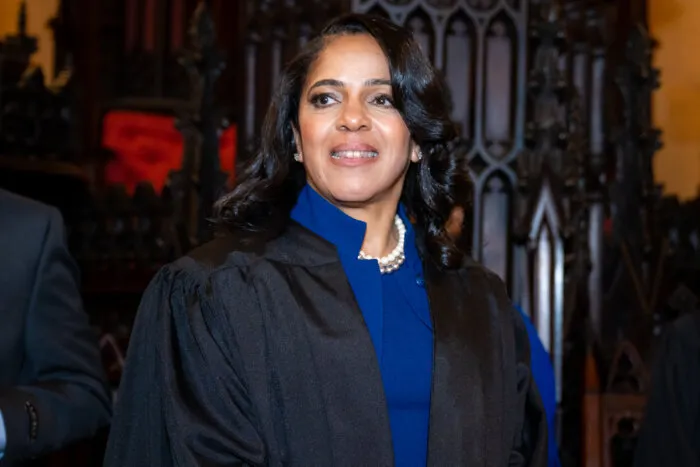The New York City Department of Education (NYC DOE) is one of the largest and most scrutinized education systems in the world. It serves over one million students across diverse neighborhoods, many of whom come from underprivileged backgrounds. Among the various programs designed to uplift these students, special attention is given to homeless youth—a particularly vulnerable group. However, the trust placed in administrators to manage these initiatives has been shaken by a recent scandal involving Linda Wilson, a former regional manager of the NYC DOE, and several colleagues. Their misuse of funds meant for homeless students has not only deprived those in need but also raised questions about accountability and ethics within the department.
This article delves into the details linda wilson nyc dept of education, its implications, and the broader lessons it offers about integrity in public institutions.
What Happened? The Core of the Scandal
Linda Wilson and five other NYC DOE employees were accused of misusing federal grants earmarked for homeless students. Between 2016 and 2019, these funds—meant to provide enriching opportunities and resources for underprivileged youth—were instead used to finance personal trips to Disney World, Washington, D.C., and New Orleans. These lavish trips included their own children and grandchildren, leaving many questioning how such actions could occur within a system designed to protect and serve vulnerable populations.
Investigators revealed that the group went as far as forging permission slips and falsifying documents to justify their actions. While some argue that the misuse of funds was a gross violation of public trust, Wilson and her colleagues maintain that the investigation was biased and unjustified. Regardless, their actions have sparked widespread outrage and calls for systemic reforms.
Impact on Homeless Students
The fallout of this scandal extends far beyond administrative misconduct. Homeless students, who often face significant barriers to education, rely on programs funded by grants like those misused in this case. These grants are intended to:
- Provide transportation and meals.
- Supply school materials such as textbooks and uniforms.
- Organize educational field trips to broaden their horizons.
By diverting these funds for personal use, the accused deprived students of opportunities that could have positively impacted their lives. For many homeless children, these programs are a lifeline offering hope and a sense of normalcy amidst challenging circumstances.
Investigative Findings
The Special Commissioner of Investigation for city schools conducted a thorough probe into the scandal. Key findings included:
- Evidence of falsified documents to include the officials’ own family members in trips.
- Misappropriation of thousands of dollars in federal funds over several years.
- A lack of oversight that allowed the misuse to go unnoticed for an extended period.
These findings led to recommendations for the termination of all six individuals involved. While some of them, including Linda Wilson, have since retired, the investigation has raised significant concerns about accountability mechanisms within the NYC DOE.
Linda Wilson’s Defense
Linda Wilson has categorically denied any wrongdoing. In public statements, she has claimed that the investigation was flawed and that she was unfairly targeted. Wilson’s defense rests on the argument that the trips in question were part of legitimate initiatives for student enrichment, though evidence suggests otherwise.
Her stance has garnered mixed reactions. Some believe she is a scapegoat for systemic issues within the department, while others argue that her actions are indicative of a broader culture of mismanagement and corruption.
Public Reaction
The scandal has drawn widespread condemnation from various quarters:
- Parents and Advocacy Groups: Families of homeless students have expressed outrage, calling for stricter oversight and harsher penalties for those involved.
- Education Advocates: Many have highlighted the need for transparency and accountability to rebuild trust in the system.
- Media and Public Figures: The case has been a lightning rod for criticism, with many pointing to it as an example of systemic failures in public education administration.
Broader Implications for the NYC DOE
This incident is not just about individual misconduct; it reveals deeper systemic issues within the NYC DOE. Key areas of concern include:
- Oversight Mechanisms: The lack of effective checks and balances allowed this misuse to continue unchecked for years.
- Resource Allocation: The scandal highlights vulnerabilities in how funds are allocated and monitored, particularly for programs serving marginalized communities.
- Trust in Public Institutions: Such incidents erode public confidence in the education system and its ability to prioritize students’ needs.
Steps Taken by the NYC DOE
In response to the scandal, the NYC DOE has announced measures aimed at preventing similar incidents in the future:
- Policy Reviews: The department is reviewing its grant management policies to identify and address weaknesses.
- Training Programs: Officials and staff are being trained on ethical practices and the proper use of funds.
- Independent Audits: External audits have been commissioned to ensure that all funds are being used appropriately.
While these steps are commendable, critics argue that more needs to be done to address the root causes of such misconduct.
Lessons Learned
The Linda Wilson NYC Dept of Education case serves as a cautionary tale with several important lessons:
- Transparency is Key: Public institutions must operate with the highest levels of transparency to maintain trust.
- Accountability is Non-Negotiable: Clear accountability mechanisms are essential to deter misconduct.
- Empathy Matters: Those entrusted with public resources must prioritize the needs of the vulnerable populations they serve.
The Role of Oversight in Preventing Misconduct
One of the glaring gaps exposed by this scandal is the absence of robust oversight mechanisms. To prevent similar incidents in the future, the following steps are essential:
- Regular Audits: Frequent financial audits can help detect and address irregularities early.
- Whistleblower Protections: Encouraging staff to report misconduct without fear of retaliation can deter unethical behavior.
- Community Involvement: Greater involvement of parents and community members in decision-making processes can add an extra layer of accountability.
Ethics in Education: A Broader Perspective
This case also raises important questions about ethics in education administration. As stewards of public resources, educators and administrators have a moral obligation to act in the best interests of students. Ethical lapses not only harm the immediate beneficiaries but also undermine the credibility of the entire system.
Moving Forward: Rebuilding Trust
Rebuilding trust in the NYC DOE will require sustained efforts at multiple levels:
- Communication: Transparent communication about reforms and actions taken can help rebuild confidence among stakeholders.
- Collaboration: Partnering with community organizations and advocacy groups can strengthen accountability.
- Commitment: Demonstrating a genuine commitment to serving students’ needs is crucial for restoring faith in the system.
Conclusion
The Linda Wilson NYC Dept of Education scandal is a stark reminder of the critical importance of ethics and accountability in public administration. While the actions of a few have caused significant harm, this case also presents an opportunity for systemic reform. By learning from past mistakes and implementing robust oversight mechanisms, the NYC DOE can ensure that resources reach those who need them most. Ultimately, the focus must remain on empowering and uplifting the students at the heart of its mission.
FAQs
What exactly did Linda Wilson do?
Linda Wilson and five colleagues misused federal grants intended for homeless students, using the funds for personal trips and including their own family members.
How were the funds meant to be used?
The funds were designated for initiatives benefiting homeless students, such as educational field trips, transportation, meals, and school supplies.
What actions has the NYC DOE taken?
The NYC DOE has implemented policy reviews, training programs, and independent audits to prevent future misconduct.
Are criminal charges being pursued?
Education advocates have called for criminal charges, but as of now, no charges have been filed against the individuals involved.
What can be done to prevent similar incidents?
Regular audits, whistleblower protections, and greater community involvement are essential to prevent misuse of public funds.
How has this scandal impacted homeless students?
The scandal diverted resources meant for homeless students, depriving them of valuable opportunities and support.


